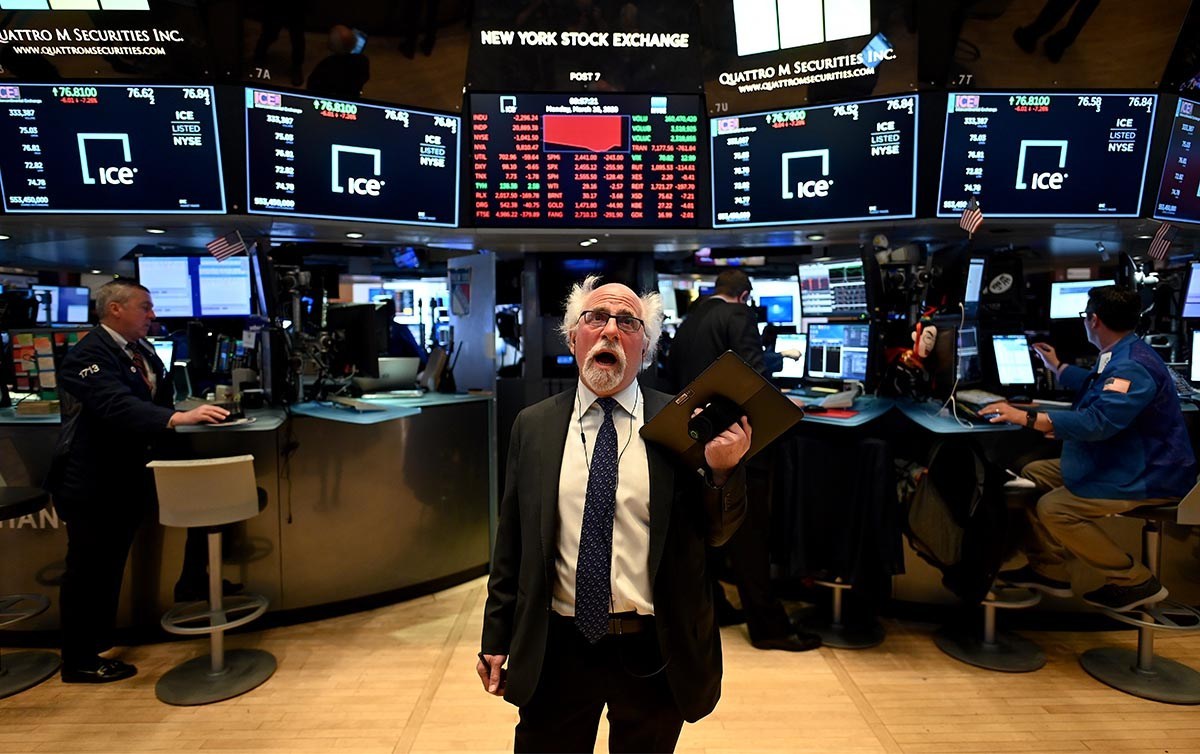(ATF) Trade of the Day: Stocks and futures slide as stimulus impact questioned; dollar extends gains.
Quote of the Day: “In times like this, market operators must rise to the challenge and provide stable and transparent access to liquidity for our issuers, market participants and investors. We remain committed to keeping our markets fully operational, though the current global pressures on financial markets mean that we will continue to operate with a heightened sense of vigilance in the coming weeks and months,” said HKEX Chief Executive Charles Li as several stock exchanges shut shop in response to the fast-spreading coronavirus which has stoked unprecedented market volatility.
Stock of the day: LVGEM China rose in a weak market after it said profit in 2019 had risen an estimated 35% due to its robust property business.
Number of the Day: $200 billion. The amount that the global airline industry says it needs in emergency support as the global lockdown takes its toll.
Tip of the Day: “An OPEC+ supply surge and crumbling oil demand are leading to concerns about a surplus that could overwhelm global storage,” said BofA Securities analysts in a note. “As stocks rise, WTI contango could widen, WTI-Brent could turn +, and oil could go sub $20. If all else fails, lease a tanker.”
Financial markets surrendered recent gains as investors were unconvinced about the stimulus spending plans announced by various governments as the threat from a global recession loomed. S&P Global has forecast a global recession this year and their economists estimate world GDP growth in 2020 will be just 1.0%-1.5%, with risks remaining firmly on the downside.
It said a recession in the Asia Pacific is now guaranteed.
“Our estimate of permanent income losses is likely to at least double to more than US$400 billion,” said Shaun Roache, the chief Asia-Pacific economist at S&P Global Ratings. “For credit markets, a key question is how these losses are distributed across sovereigns, firms, banks and households.”
The timing of the recovery from the recession was likely to be staggered, Morgan Stanley analysts said, with China likely to trough in 1Q20, with the rest of Asia ex-Japan slowing further into 2Q20. “The severity and duration of Covid-19 mean a U rather than V-shaped growth profile looks more likely,” the note said.
The investment bank expects authorities to use both monetary and fiscal measures with another 100 bps cut in Philippines, a 75 bps cut in Indonesia, a 65 bps cut in India, a 40 bps cut in China and a 25 bps cut in Thailand, Malaysia and Taiwan.
But it said there is more space on the fiscal front given generally manageable public debt/fiscal deficits.
“Overall, policy easing helps to mitigate the fallout on the private sector and labor market – but a growth turnaround still needs Covid-19 containment,” Morgan Stanley economists said.
The virus has so far claimed 7,956 lives and infected nearly 200,000 people globally and is the biggest concern on investor minds as Japan’s Nikkei 225 slumped 1.68%, the Kospi benchmark tumbled 4.86% and the Australian benchmark dived 6.43% with the MSCI Asia Pacific ex-Japan index down 3.4%. S&P500 futures are down 3.7% and the Stoxx Europe 600 is 4.3% lower.
UMESH DESAI
Umesh Desai is Asia Times Finance Editor. Prior to his current role he was at Reuters for 19 years before which he was a credit ratings and equity research analyst. A chartered accountant by training, he is based in Hong Kong. More by Umesh Desai
























